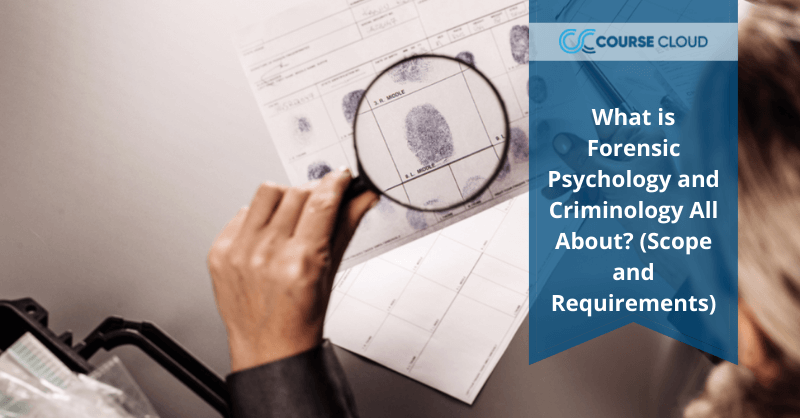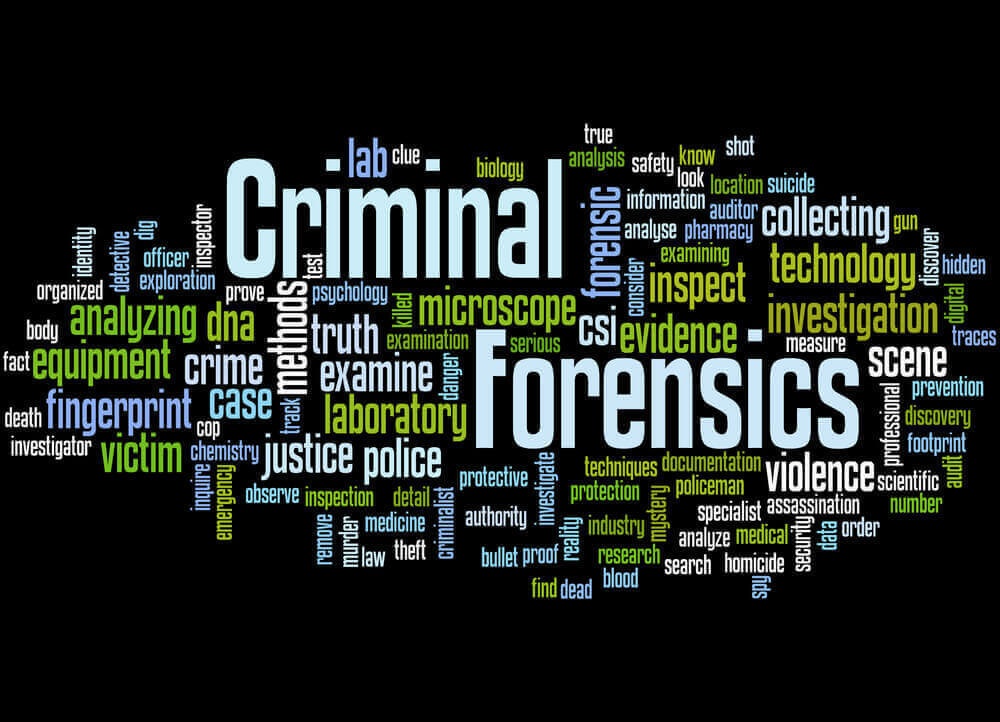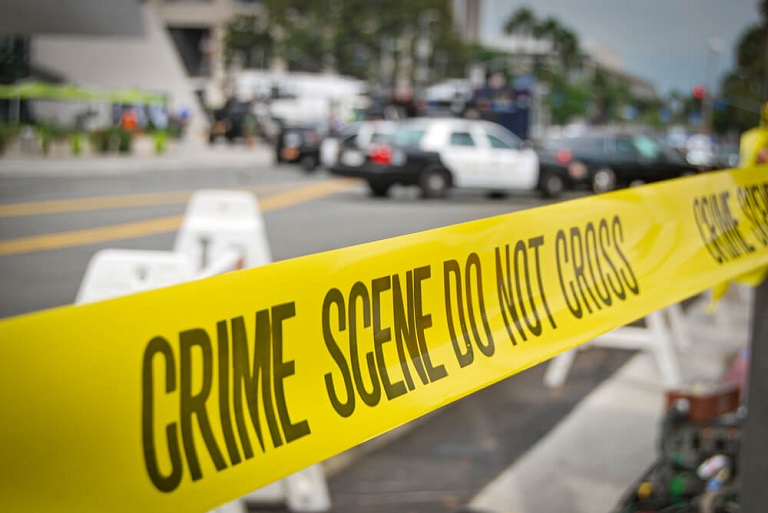
“What is forensic psychology and criminology?” is a pretty common question for people who are interested in criminal behaviour. Forensic psychology and criminology are as rewarding as they are challenging. It also comes with a range of career options. So let’s get down to the details about forensic psychology and criminology.
What is Forensic Psychology?
Forensic psychology is the application of psychology within the legal system to find pathways away from criminal behaviour. Therefore, forensic psychology assists people in creating safer communities.
Forensic psychologists work across many settings. Some examples are Probation Service and HM Prison, police forces, Courts, Hospitals, Universities, and secure children’s homes.
Forensic psychologists evaluate, form, and negotiate with those engaging in harmful behaviours. In addition, they provide advice and expertise to other professionals. Developing and facilitating training and knowledge in forensic settings are also parts of their jobs. And they do it all with the ultimate goal of developing a safer society.

What is Criminal Psychology?
Forensic psychology associates act with various types of court cases and civil matters which do not involve criminals. On the other hand, criminal psychology deals with everything related to criminal behaviour. That includes a criminal’s thought processes, intentions, motivations, and reactions. For instance, a criminal psychologist is concerned with answering the question: why do criminals commit crimes?
Criminal psychologists aim to understand the motivations of criminals. They also develop a psychological outline to understand them better. Finally, they examine criminal behaviour and diagnose any mental health conditions. In addition, they frequently need to step into the courtroom to present proficient statements or evidence. There are other duties, including counselling criminals or assessing their risk of relapse
What is the Difference Between Criminal Psychology and Forensic Psychology?
By this point, you have a clear knowledge of what is forensic psychology and criminology. Now let’s delve into the differences between them.

When analysing forensic psychology vs criminal psychology, it’s essential to note some key differences between these two professions. They differ in education requirements, career paths, work environment etc.
Educational Requirements
An undergraduate degree in forensic psychology gives students a blend of psychology, criminal justice, and social science. This combination gives them a comprehensive understanding of the modern forensic psychology landscape. However, those who do not want to earn a PhD or PsyD and have a bachelor’s degree might find employment in corrections or advocacy.

In contrast, the criminal psychology educational field focuses particularly on learning the mind of a criminal. Criminal psychology courses include behavioural statistics, abnormal behaviour, adolescent psychology, and substance abuse patterns. Criminal psychology is generally not offered as a degree program itself. Instead, one can obtain it as a part of a doctoral program, master’s, or bachelor in psychology or criminology.
Career Path and Scope
Criminal psychology focuses on criminal behaviours. On the other hand, forensic psychology includes work in criminal and civil law, academic research, work in prisons, and at-risk youth counselling.
Forensic psychology requires assessing a wide array of people.
- First, the victims of crime
- Second, the witnesses and attorneys
- Finally, the law enforcement
Forensic psychology degree program’s graduates can also become-
- Jury consultants
- Juvenile offenders counsellors
- Expert witnesses
Those who obtained an advanced degree may become-
- Forensic psychologists or even
- Forensic psychology professors.
Graduates of criminal psychology work specifically with criminals instead of victims or juries. In addition, aspiring criminal psychologists may find work in-
- Criminal corrections
- Criminal profiling
- Psychology
Criminal psychology majors can flex critical thinking and observational skills in each field. They can be instrumental in meeting legal protocol and working with individuals with mental health disorders, as a result of keeping them safe, as well as the community at large.
Work Environment
Below are some of the different areas forensic psychologists may find themselves in-
- Visiting crime scenes
- Attending law enforcement agents
- Appearing in courts and delivering expert-level testimony by standing in a courtroom
- Providing expert data
- Deciding when can a criminal stand for their trial

On the other hand, as a criminal psychologist, you will have to spend more time with case files and trial procedures. Your primary job will be surrounded by researching past case files and analysing criminal profiles. This may sound tedious, but you will often find yourself in between full of illegal profiles and past cases in a record room or a library to draw links and connect the dots. This period is an elemental one of any criminal psychologist’s career.
At times, you may have to confer with a law enforcement group to share your insights into a criminal’s next move. Law enforcement agencies commonly rely on a criminal psychologist’s insights to help them predict the movements and actions of a suspect.
What are The Career Paths for Forensic Psychology, and What are The Requirements?
Now that you know what is forensic psychology and criminology, also the difference between them, it’s time to discuss the available career scopes and their requirements in detail.
Forensic Psychology Career Scopes
There are many paths possible for those seeking a career in forensic psychology. Discover a few of our highlights below.
Correctional Counsellor
As a correctional counsellor, a forensic psychologist can offer counselling and treatments for inmates or ex-convicts.
Similarly, often, they direct both group and individual sessions with convicts. Additionally, forensic psychologists may counsel to develop plans that will decrease recidivism rates.
Their work includes:
- CBT or Cognitive Behavioural Therapy
- Diagnosis of psychological conditions
- Collecting insights from lawyers and caseworkers and treating accordingly
Likewise, a correctional counsellor can provide profound insights into the well-being of inmates. Besides that, they can give instructions for parole hearings.

Jail Supervisor
Jail supervisors, also known as corrections supervisors. Their work centres around keeping inmates and staff members safe in correctional facilities like state prisons, juvenile jails, and detention centres. Responsibilities include-
- Supervising daily activities
- Alleviating conflict between inmates
- Make sure the prison is clear of piracy
A strong jail supervisor has bold communication as well as conflict resolution skills. Since their role is to keep harmony, it’s necessary to understand each situation and deal with it patiently. That’s why a psychology background is so beneficial in this context.
Victim Advocate
A victim advocate serves directly to the victims of crimes. In addition, they also deal with survivors of traumatic events like domestic violence and sexual assault. An advocate’s duty includes:
- Helping the victim understand and deal with their case, therefore, legal rights
- Provisioning support through law
- Attending hearings and assisting the victim through it
It’s essential to remember that advocates will be there to provide support to victims, resources, and information. However, they do not direct victims towards any specific decision or move. Victim advocates can either work for police stations, government organisations, or private organisations like crisis centres and non-profits. They are also able to work in courts.
Jury Consultant
Various applications in court systems need a forensic psychologist. Including
- Evaluating witness testimony
- Selecting juries
- Providing consultations and more.
Additionally, forensic psychology connects the court system with psychological insights. Specifically, a master’s degree in forensic psychology is a stepping stone toward this career path. Thus, Forensic psychology courses can give you insight into jury selection as well as courtroom dynamics.
Police Consultant
Many forensic psychologists choose to work in the justice system. On the other hand, some may like to work as police consultants in law enforcement. For instance, detectives and police officers rely on forensic psychologists to understand criminals’ minds. Therefore, they help in apprehending convicts.
Additionally, police consultants help educate police officers on the best approaches to follow in their communities. It helps them improve policing strategies of the community. And also helps spot interpersonal conflicts or difficulties within the department. Duties may include:
- Providing self-destruction or suicide prevention training
- Anger management sessions
- Critical Incident Stress Debriefing (CISD) training
- Educating police officers on situations involving the disabled and mentally ill convicts and how to handle them better.
Licensed Professional Clinical Counsellor
Graduates often work as counsellors in a wide variety of industries. From domestic violence shelters, addiction treatment facilities to private practices, forensic psychology is a versatile field. As a result, it can lead to multiple counselling careers.
Of course, almost all counselling careers require licensure. If you want to become a licensed professional clinical counsellor like the ones below, be sure to look for related programs with a licensure track.
- Licensed Professional Clinical Counsellors (LPCC)
- Licensed Professional Counsellor (LPC)
- Licensed Clinical Professional Counsellor (LCPC)
Probation Officer
If you would like to do legal work more peripherally, consider the position of a probation officer. Probation officers supervise people who were freshly released from the prison system. Additionally, they can also help people placed on parole (parolees).
A master’s in forensic psychology will support officers in making decisions about
- Determining released date
- Evaluating the possibility of unsafe behaviour
- Advising past offenders
A probation officer coupled with a degree invested in psychological wellness can become important contact points for those who need guidance.
Crime Analyst
Crime analysts work hand in hand with law enforcement agencies. They detect criminals and sort crime profiles together. They do this by examining and comparing data to control crime occurrences in a given location. In addition, this position may require –
- Providing statistical support to the police force
- Helping the police force with Strategic
- Supporting with investigation
By acquiring a degree in forensic psychology, one can gain detailed knowledge on how to examine statistical data. Thus, to read and evaluate forensic research and so on.

Forensic Research Psychologists
Forensic research psychologists perform their research in various areas. It includes questioning victims, suspects, and people related to the crime and studying criminal history. They also study the particular crime situations. For example, the age group that is most relevant to that crime is equally important.
The researcher studies the crime scene and records the information that other investigators missed. For instance –
- Eye-witness accounts
- Patterns
- Evaluation of offenders
- Victim treatment programs
Investigative Journalist
With an educational background in forensic psychology, one can use their specific knowledge to work as a crime reporter or investigative journalist.
In many cases, investigations can become overwhelming for detectives and law enforcing agents. Therefore, investigative journalists may help and provide additional researched data documentation for some instances.
Investigative journalists work with law enforcement to collect and analyse the information, which they receive by
- Witnessing and informants
- Attending and addressing press conferences
- Interviewing victims, suspects, and relatives of those who are involved in a case
- Following up on leads and relating that to the crime.
Forensic Social Worker
Forensic social workers work in collaboration with regular social workers. They work to help those who are directly affected by the crime. Their contributions work as bridges between the law enforcement agencies, the court system, and the afflicted individuals.
Their work duties include:
- Suggesting suitable protection and therapy to criminal defences and witnesses
- Estimating the appellant’s mental state
- Asserting as expert witnesses
- Recognising illegal movements within their clients
As can be seen, Forensic psychologists hold a role in almost all phases of society. Moreover, with the ever-expanding crime rate, their expertise is life-saving to all involved in society altogether.
Forensic Psychology Requirements
Only knowing ‘what is forensic psychology and criminology’ isn’t enough to decide whether you want to pursue this career. Those exploring to advance or even enter this field may want to consider obtaining a
- Master’s degree in forensic psychology.
That will combine psychology with the processes and procedures of the legal system.
Becoming a forensic psychologist requires a
- PhD or a Doctor of Psychology (PsyD).
In fact, during undergraduate study, many forensic psychologists major in psychology or forensic psychology. And later on, they complete internships and postgraduate training in law enforcement.
However, there are many entry-level opportunities in the field, including as a
- Victim advocate
- Corrections specialist
- Probation officer
In these career paths, individuals can understand the judicial system’s philosophy, standards, and processes.
What are The Career Paths for Criminal Psychology, and What are The Requirements?
The field of criminal psychology also offers a variety of career options—from consulting on public policy to working within the criminal justice system. While these are options that many may pursue, they’re not your only choice.
Criminal Psychology Career Scopes
Let’s check out what those choices are.
Researcher and Educator
With a degree in criminal psychology, you may become a researcher or educator at research laboratories, colleges, or perhaps in universities. Plus, you can teach undergraduate and graduate students in criminal psychology classes. The knowledge you have got from your criminal psychology degree will help you with that.
In addition, your psychological expertise will allow you to develop more effective ways to do your work. This includes evaluating and examining the mental health of victims, suspects, witnesses, prison inmates and repeat offenders.
Moreover, you can conduct studies on how to develop the legal process in order to generate more reliable criminal profiles so that cases can be solved faster.
Forensic Psychologist
The second career path you can take if you have a PhD in criminal psychology is forensic science. With this degree, along with a licence and certification, you will be able to practice forensic psychology. Also, you will be able to study a criminal’s thought patterns, behaviours, and motivations.
In some cases, you may provide counselling services to prison inmates, as shown above. And also decide if the offender requires more inclusive mental health care services.
Crime Scene Investigator
One can assist with criminal investigations with a master’s or even bachelor’s degree in criminal psychology. Thus, their primary responsibilities will be to:
- Assess the mental processes or thinking patterns of the perpetrator, the victim, and witnesses.
- Manage and analyse psychological assessments.
- Provide criminal profiles to law enforcement.
- Assist attorneys to select jurors for trials.
- Evaluate crime scenes.
- Present expert testimonies.
- Assist in investigations
- Help law enforcement, the court, the federal bureau of examinations and so on to understand why the suspect could or would have committed the crime.

In other words, your primary duties will be to give a psychological explanation as to what motivated the crime. Also, if the suspect was insane at the time and why the victim missed early warning signs.
NB- To succeed in this career field, one must have a strong background in-
- Forensic science
- Criminal justice
- Criminal science and
- Criminology.
Trial Consultant
Trial consultants help prosecutors and defence attorneys to prepare for their trial. A trial consultant can be a specialist in fields such as
- Psychology
- Sociology
- Communications to law enforcement.
For instance, an expert trial consultant with good communication skills can coach a prosecuting attorney to deliver their statements properly to the court.
Social Worker
Finally, it’s social working. One may become a social worker with a bachelor’s degree. In fact, it’s better with a background in criminal psychology. It will allow you to work for a government agency, a prison, and a juvenile detention centre. Your primary duties will be to
- Provide support and assistance to convicts or those with criminal records
- Support these individuals find employment
- Provide patients with mental health services, housing, and obtain resources.
In addition, you will spend much of your time helping those newly released from jail to re-enter society successfully. Meanwhile, you can also provide counselling to adolescents who are at-risk for future criminal involvement.
Criminal Psychology Requirements
For the most part, becoming a criminal psychologist will require a doctorate in psychology along with a licence to practice. The professions mentioned above usually need the completion of postdoctoral studies and research in criminal behaviour. In addition, criminal psychologists often come from a law enforcement background. As a result, they bring skills learned in graduate programs, where they reap the benefits of their psychology skills.
What Qualifications are Needed for Becoming Forensic and Criminal Psychologists?
Although both forensic and criminal psychologist positions demand advanced education. Along with an accredited master or conversion degree, you will also need to have a minimum of two years of experience in the related role. Either in a volunteer role or in a position. Not only will it help to differentiate your application from others, but it also will increase your demand in the field.

In addition, this level of experience will also allow you to develop your social and communication skills in this profession.
Parting Thoughts
To sum up, Criminology and Forensic Psychology both are strongly connected to law enforcement. Both the professions support investigations, whether civil or criminal. They both aim to work with law enforcement to solve crimes by understanding the psychology of criminals. Professionals in both these fields require academic study along with practical experience in criminal justice.
In any position, criminal or forensic psychologists are bound to spend at least some of their time profiling criminals. This ever-growing field of investigative analysis is helpful to resolve cases and apprehend criminals successfully. So, the shared key in both professions is a thorough understanding of human psyches, behaviours, and mental processes. Now that you know what is forensic psychology and criminology and everything about them, do you think you can walk on this career path?


0 responses on "What is Forensic Psychology and Criminology All About? (Scope and Requirements)"